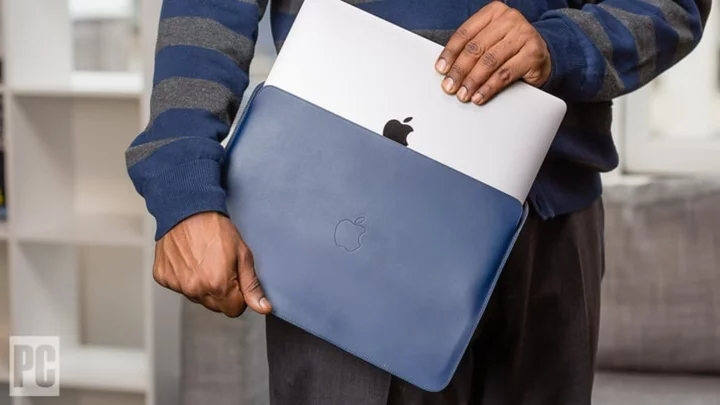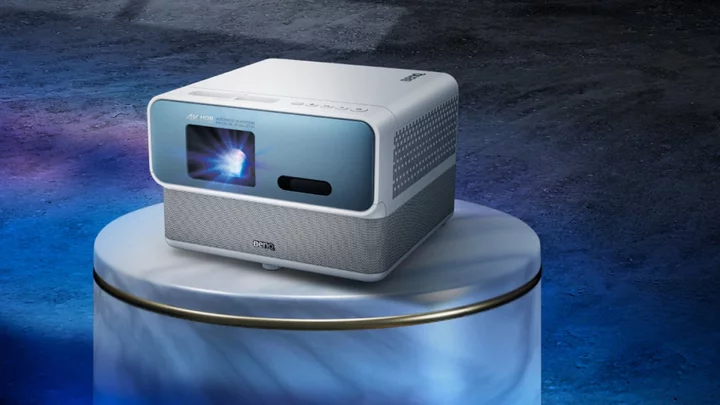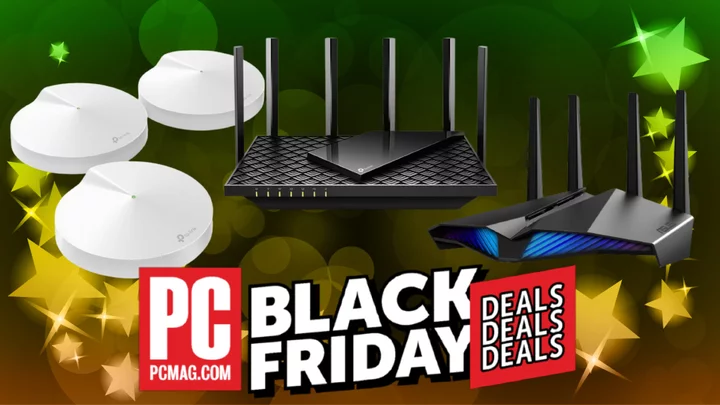For students, a laptop is as essential as textbooks and a school ID—and not just for taking notes and writing papers. It also needs to handle your extracurricular activities, from streaming movies and music to keeping up with your social networks, posting photos, gaming, and video chatting with the 'rents back home. With more colleges and universities mixing on-campus and remote learning, a laptop you can use wherever you are is essential.
A college laptop must also respect your budget while lasting through at least four years of undergrad and maybe a year or two of grad school. Lucky for you, we've collected our favorites from recent reviews—notebooks that not only fit the above criteria but (for the most part) are priced under $1,000, so they won't replace tuition as the biggest threat to your bank account. Check out our picks for the best college laptops for 2023, then keep reading to learn the details of what to look for while shopping.
How do you narrow down the list above, let alone other laptops not mentioned here, to find the right one to be your college colleague? Some of the questions to ask will apply to all laptop shoppers, whether families with kids or corporate executives; others are specific to higher education. Let's run down what you need to know.
Check With the School: Do College Students Get Laptop Discounts?
The first, and most important, thing to do is check with your school for specific system requirements and negotiated discounts. They may have hard-and-fast hardware recommendations available at special prices from vendors—or not.
Some colleges and universities want their students equipped with Windows-based laptops, to cut down on software incompatibility issues or to keep technical support concentrated on one platform. Others don't care which operating system you use, whether it's Windows, macOS, or even Linux if you're a hardcore type. Some institutions have onsite computer repair centers that service only laptops purchased from the university or an affiliated computer store on campus. Using one of these facilities, the turn-around time will be much quicker than if you were to send it overnight to the original manufacturer.
Most schools do offer price breaks for particular vendors and include extensive software bundles, which can shave off a good amount from your laptop purchase. So you might want to look into the campus store as a first shopping destination before you hit your local superstore or favorite online seller.
How Heavy Should a College Laptop Be?
Not every student will agree, but depending on how far you'll haul it every day, a big-screen notebook may not be such a good idea.
It's nice to have a mini home theater in your dorm room or play the latest games in big-screen glory, but a 5-pound-plus laptop with a 15- or- 17-inch screen will be a chore to haul across campus while you're running from class to class. You're better off with something that's light: If screen size matters less to you than convenience, a super-thin ultraportable might be the way to go.
(Credit: Molly Flores)For most people, a 13- or 14-inch widescreen panel is ideal, as it will make room for other items in your backpack and minimize the weight burden. Depending on your tolerance level, a smaller display works as long as you understand that full web pages and productivity applications will involve more scrolling, and fonts will appear smaller than they do on larger screens, assuming the same resolution and zoom level.
Essays, research papers, and chatting online with your classmates will take up most of your computing time, so a full-size keyboard and a comfortable touchpad are crucial. Also know: When you venture smaller than a 13-inch-class laptop, you run the risk of not getting the same typing experience. The easiest way to ensure that you have the best keyboard is to stop by a brick-and-mortar store and spend some time typing on prospective choices of different size classes.
If you do decide to buy a smaller, less expensive laptop, it's probably worth investing in a standalone keyboard you can keep at home or in the dorm for when you need to do a lot of typing. A desktop monitor you attach via HDMI could be a nice complement, too.
What Processor to Get in a College Laptop?
Laptops offer a wide selection of processors across both budgets and usage cases—you can choose one that maximizes performance or one that favors battery life. Or you can select one that plays to both strengths: Intel's Core CPUs confer the benefits of both power and battery efficiency. AMD's Ryzen mobile chips are less common but have also emerged as viable picks for ultraportable laptops.
If you desire all-day battery life and spend almost all of your time in a web browser, you might want to consider going with a Chromebook. These typically run on low-powered processors (Intel Celeron and Pentium chips, in most cases), but these CPUs suffice for the kinds of workaday online tasks that Chromebooks excel at. (More about Chromebooks in a bit, below.) If performance, on the other hand, ranks high on the list, a Mac with an Apple M1 or M2 chip, or a Windows laptop with at least an Intel Core i5 or AMD Ryzen 5, gives you the most oomph. (If you want to dig deeper, our guide to laptop processors gets into lots more detail on understanding CPUs for laptops.)
(Credit: Kyle Cobian)If you like playing games in your downtime, you might want to splurge on a more expensive gaming laptop. Most general-purpose machines, especially at under-$800 prices, won't have the kind of discrete graphics chip (GPU) necessary to make the hottest AAA game titles look good and play smoothly. But if you hunt around a little, you can find gaming laptops these days starting at around $700 to $800 with a decent Nvidia GeForce GTX or (less commonly) AMD Radeon RX GPU for playing games at 1080p and moderate or better settings. (See our guide to the best cheap gaming laptops for lots more about budget GPUs, and about how to buy just enough of a gaming machine for your needs.) A powerful GPU can also help in certain high-end and scientific applications that can benefit from GPU acceleration, but, like a high-powered processor, they also feast on the battery.
The good news is that in most other cases (unless, say, you're an architecture major with a heavy reliance on CAD software), integrated graphics solutions should suffice for the day-to-day tasks you'll face. This is the graphics silicon built into the processors of most budget and midrange laptops. Today, that overwhelmingly means some form of Intel integrated graphics: Intel HD Graphics, Intel UHD Graphics, Intel Iris/Iris Plus graphics, or Intel Xe Graphics. Our reviews will detail their comparative performance levels, but none is a match for even a moderate dedicated GPU. (Read more about the limits of gaming on the integrated graphics processors in mainstream laptops.)
SSDs Are Top-Tier: How Much Storage to Get in a Laptop for College?
With the increasing prevalence of cloud storage and web applications, having plentiful local storage space is somewhat less vital now than it used to be, but you should still make sure that your laptop meets your needs. If you plan to install a lot of programs or want to hang on to lots of large media files, you'll need 500GB of space or more. If you don't foresee needing all that local storage or are content with leaving a lot of your work online, you can get by with a laptop with less space.
(Credit: Molly Flores)Whichever way you go, remember that storage affects speed, too. If you go with one of the increasingly uncommon budget laptops that uses a hard drive, because you get more storage for less money, know that it will be noticeably slower than a snappy-feeling solid-state drive (SSD). The higher cost and lower capacity of a faster SSD is a trade-off that some students are willing to make, and most should. We strongly recommend SSDs for laptops that are carried around campus a lot, since the SSDs (if not the laptop itself) are impervious to drop damage. Plus, being a lot faster than hard drives, they give a laptop a much snappier perceived feel.
The good news is that by plugging an external hard drive or external SSD into one of your laptop's USB ports, you can add more space whenever you need it. Although you probably won't have to do this unless you're a video junkie or an aspiring filmmaker, it's a good option to have.
Gamers may want to take an altogether different view. With many AAA game installations topping 40GB or 50GB each, a small SSD can get eaten up fast. You'll want to think about that before you buy a machine, say, with a 256GB SSD alone, or at least be prepared to swap games on and off the drive as you tire of or complete them. You really need to insist on at least a 500GB SSD in a gaming laptop.
What Kind of Battery Life to Expect From a College Laptop?
A sizable battery can be your biggest ally on a day filled with classes and extracurricular activities. A few school-oriented laptops come with multiple battery options. Most, though, have only one—and it's not removable.
In this case, figure out where battery life ranks in the grand scheme of things. If removable batteries are an option (which is rare), it might be a good idea to get a second one, or a larger "extended" one if available, at the time of purchase. The more "cells" the battery contains within a given model line, the better the battery life, all else being equal.
A big battery can mean some heft, but the weight gain is well worth it if it means leaving the system unplugged from dawn until dusk. This is where our reviews come in especially handy; we've tested every laptop that passes through our labs for battery runtime with nonstop video playback, so you can get a good idea of relative endurance between models.
Are Chromebooks Good for College?
In the past several years, we have seen a strong push by Chromebook manufacturers into the education market. Chromebooks themselves have gone from being glorified netbooks running Chrome OS to laptops that are still web-centric but have a relatively full feature set. If, like many schools, the one you're attending puts its coursework in the cloud, a Chromebook can offer you much of the functionality of a regular laptop, and it may deliver longer battery life.
It will also likely cost you a lot less than other types of notebooks. Prices for basic Chromebook models typically run between $200 and $400 (although higher-end models can go for as much as $1,000). Just be sure you have ready access to constant, stable Wi-Fi, as there is scant local storage on these systems, and you have to plan ahead to use them effectively offline.
(Credit: Molly Flores)PC gamers, of course, won't find much use for one of these laptops; they only run Chrome OS apps and Android apps from the Google Play store. But a Chromebook can also be a good, inexpensive second laptop you carry around campus to take notes, while your beastly gaming rig (or desktop gaming PC, for that matter) hangs back at the dorm or at home. (In the market for a Chrome OS laptop? We've rounded up today's best Chromebooks.)
Are 2-in-1 Laptops Worth It for College?
In recent years, a new category of laptops has emerged. Hybrids, also known as 2-in-1s, are capable of functioning as traditional clamshell-style laptops when you need them to but can transform into tablets when that's a more convenient form for what you're doing. Some (generally called convertibles) sport a folding design that flips the keyboard out of the way, usually by rotating all the way around its hinge.
(Credit: Molly Flores)Others ("detachables") allow you to dock a tablet/screen portion of the PC with an accessory keyboard for laptop-like functionality. While these devices are tablets first, some still provide the level of performance you'd expect from a laptop, and are easily used on the go as laptop-like devices with the proper keyboard accessories, or docked at a desk for a more desktop-like experience. However, what they do better than any laptop is let you take handwritten notes just like you would with pen and paper, making them ideal for many types of study. Microsoft's Surface Pro devices tend to be in the forefront in terms of power and design for detachables.
(Credit: Molly Flores)A budget 2-in-1 might be just what you need to fill a number of roles. One thing to be mindful of: If you are considering a detachable 2-in-1 design, make sure the keyboard base is included in the price. In some cases, it is; in others, it is an added-cost accessory that will bump up the price, sometimes by more than you'd expect. (See how we test laptops.)
How Long a Warranty to Get for a College Laptop?
Almost every laptop you might buy today is backed by at least a one-year warranty on parts and labor. Extended warranties are also available, but whether they're worth it depends on who you are as a user.
For starters, know that the standard warranty doesn't cover accidents that stem from a spilled drink or a drop on concrete. Most manufacturers sell accident coverage as a separate plan, on top of extended warranties that supplement the standard one, so you might end up spending close to $300 for three years of coverage. Apple offers a maximum extended warranty of three years, while some makers of Windows laptops will offer up to four years.
(Credit: Molly Flores)In our opinion, if the warranty costs more than 15% of the total laptop price, you're better off spending the money on backup drives or services that minimize downtime in case something does go awry. Of course, you can't put a price on peace of mind. In rare instances, the logic board or the display—the most expensive pieces of a laptop—can fail and cost you in repairs half or more of what the laptop is worth. Faulty inner components (except the battery) usually break down during the first year, though; anything after that is probably more about regular wear and tear.
This again, though, is a case where the college itself may be an X-factor. Some schools have special arrangements with specific vendors for onsite service of their laptops, so it could pay, once again, to check with the college's bookstore or computer store to see if any such special circumstances apply. It's possible, say, that you could get parts and repairs for your Lenovo ThinkPad done overnight.
So, What Are the Best Laptops for College Students?
As with so many things...it depends. True, there are ever more choices on the market today, and slogging through them can be daunting. No worries, though: We did the work for you.
Scroll or swipe down for detailed specs on the hottest laptops to grace the dorm room, college classroom, and campus quad for this school year. And if you or the person you're shopping for is closer to graduation than freshman year, you should check out our guide to the best laptop for each type of graduate, which offers better choices for career-specific options. For more general factors to look for when shopping, check out our overall top laptop picks, as well as our favorite budget notebooks.









